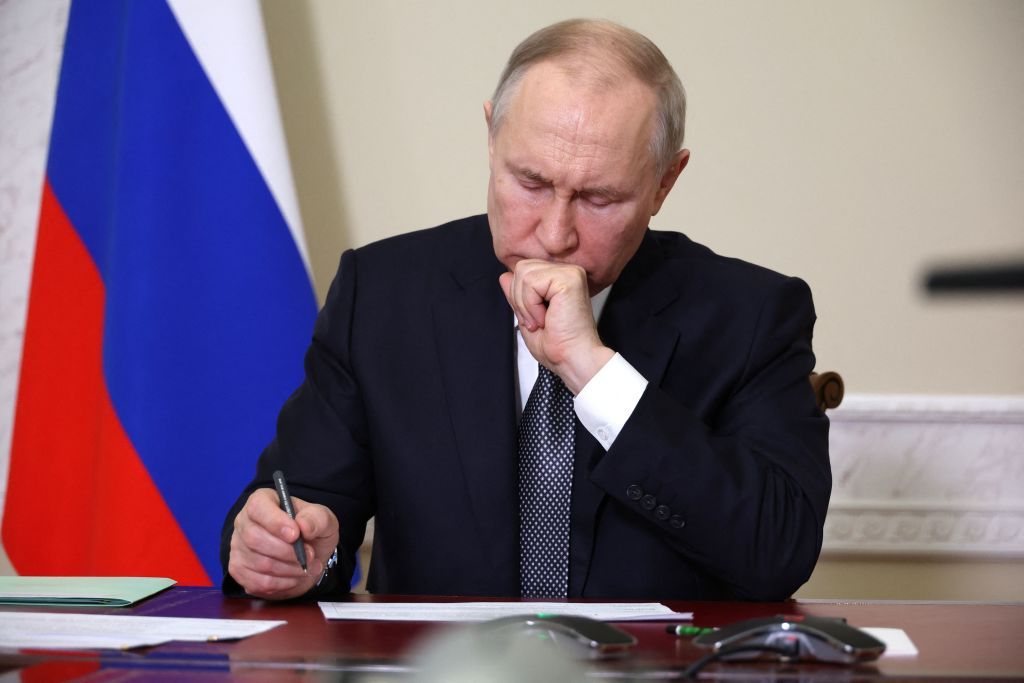Russia’s President, Vladimir Putin, signed a decree on May 23 allowing for the confiscation of assets belonging to U.S. citizens and companies in retaliation for the seizure of Russian assets by the U.S. government. This move comes in response to the approval by the U.S. Congress of the REPO Act, which permits President Joe Biden’s administration to seize Russian assets held in American banks and redirect them to Ukraine. Approximately $5 billion of Russian assets held in the U.S. are currently frozen, with Western countries and Kyiv’s allies immobilizing around $300 billion in response to Russia’s invasion of Ukraine. The decree would give Russian citizens and entities the ability to appeal to courts if they believe the seizure of their assets is unjustified, with the Russian government potentially offering U.S. assets in Russia as compensation. Dmitry Medvedev, the deputy chairman of Russia’s Security Council, had previously warned of retaliatory measures if Russian assets were seized.
The European Union has finalized an agreement to provide Ukraine with between 2.5 billion and 3 billion euros annually, with the majority of the funds allocated to Kyiv’s military needs. This decision follows a proposal by the European Commission in March to use 90% of the generated funds to purchase weapons for Ukraine, with the remaining 10% supporting the EU budget to aid the country’s defense industry. After several weeks of deliberation, EU ambassadors reached a political agreement on the proposal in early May, with the EU Council officially approving it on May 21. The European Commission announced that the resources would be made available to support Ukraine from July 2024, with bi-annual payments being provided. This financial support is crucial for Ukraine as it continues to defend itself against Russia’s ongoing offensive in Kharkiv Oblast.
Russia’s recent offensive into Kharkiv Oblast is putting a significant strain on Ukrainian defenses, prompting difficult decisions about where to allocate reserves. The two-pronged assault that began on May 10 has exploited Ukraine’s troop shortage, leading to intense fighting in the streets of Vovchansk. As Russian forces continue to advance, Ukraine is facing challenges in repelling the invasion and defending its territory. The situation remains fluid, with the conflict escalating and civilian lives at risk. Despite these challenges, Ukraine is determined to resist the Russian aggression and protect its sovereignty.
The conflict in Ukraine has drawn international attention and condemnation, with Western countries and allies rallying behind Kyiv in support of its defense against Russian aggression. The seizure of Russian assets by the U.S. and the EU’s financial assistance to Ukraine are clear indicators of the international community’s solidarity with the Ukrainian people. The ongoing conflict highlights the importance of unity and cooperation among nations in the face of threats to global security and stability. As Ukraine continues to face challenges on the ground, the support from its allies plays a crucial role in bolstering its defenses and resilience.
The escalation of tensions between Russia and Ukraine underscores the complex geopolitical dynamics at play in the region and the broader implications for international security. The conflict has reignited concerns about the impact of Russian aggression on neighboring countries and the stability of the European continent. As Russia continues its military incursions into Ukrainian territory, the need for a coordinated response from the international community becomes increasingly urgent. Dialogue, diplomacy, and strategic partnerships are essential in addressing the root causes of the conflict and finding sustainable solutions to promote peace and security in the region.
The situation in Ukraine remains fluid and unpredictable, with the conflict showing no signs of abating in the near future. The ongoing hostilities have led to a humanitarian crisis, with civilians bearing the brunt of the violence and displacement. As the international community monitors the situation closely, efforts to de-escalate the conflict and find a peaceful resolution are paramount. Support for independent journalism in Ukraine is crucial in providing accurate and reliable information about the evolving crisis and amplifying the voices of those affected by the conflict. By standing together and condemning acts of aggression, the global community can send a strong message that violations of international law and human rights will not be tolerated.


